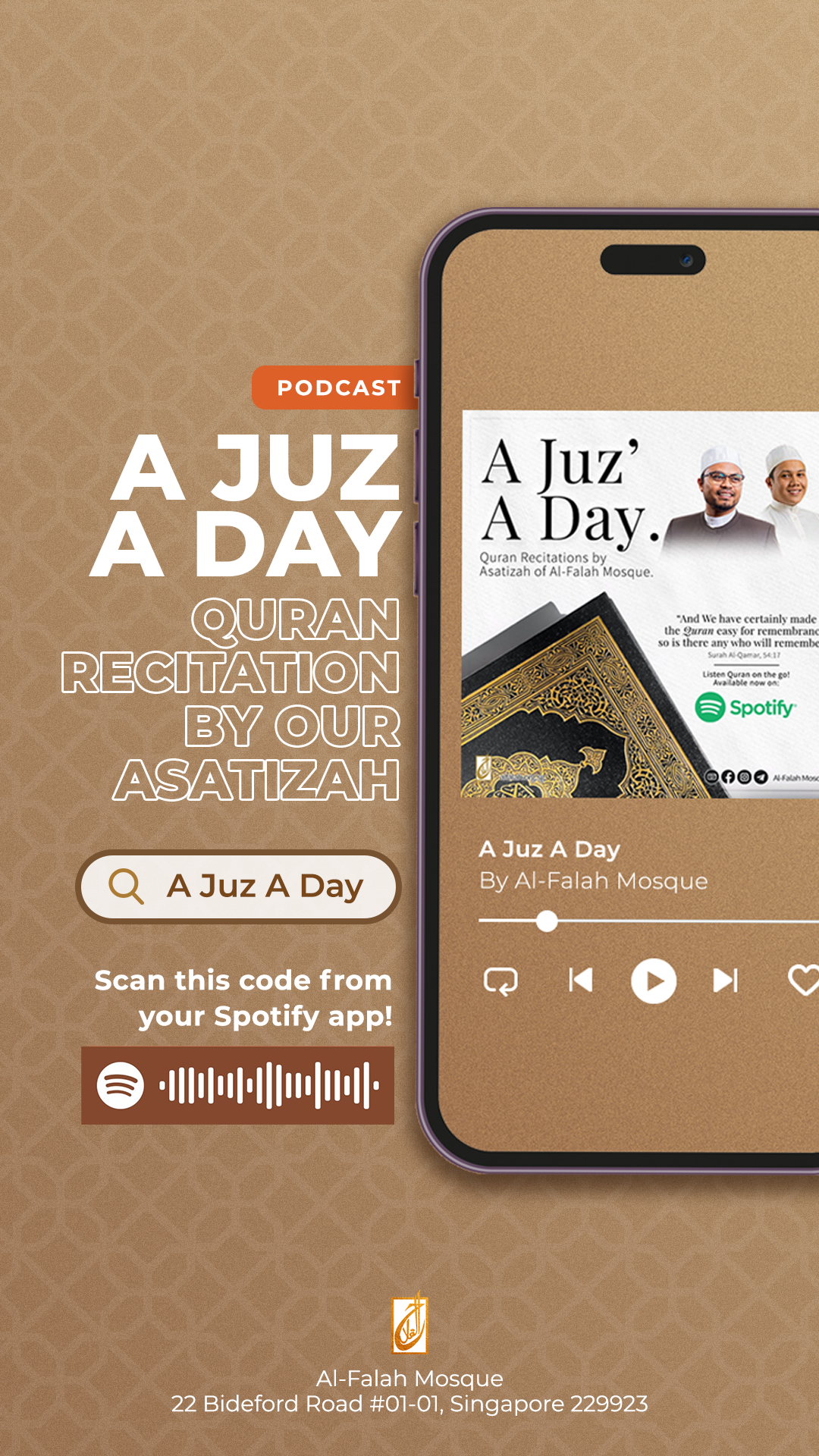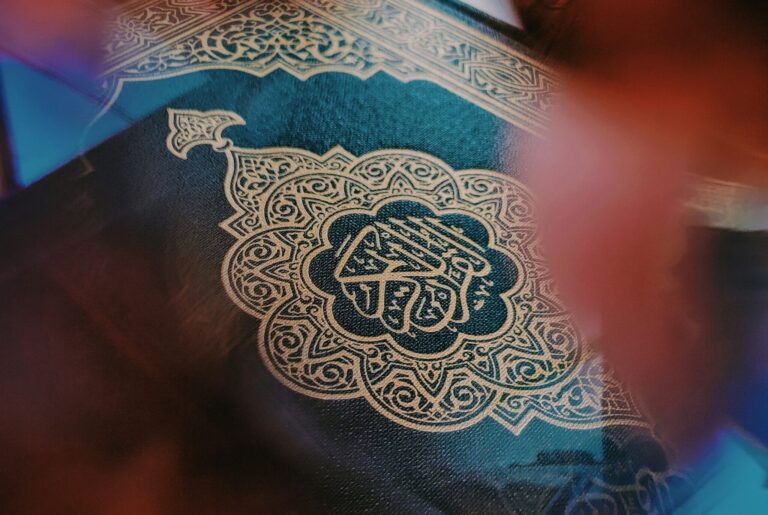Articles
Your Healer: Al-Falaq (Verses of Reality & Healing)
1. The Surah like no other
This is mentioned in the Hadith of `Uqbah ibn `Amir (may Allah be pleased with him) who said: The Messenger of Allah (blessings and peace of Allah be upon him) said: “Do you not see verses that have been revealed tonight, the like of which has never been seen?
Say, “I seek refuge in the Lord of daybreak} [Al-Falaq] and Say, “I seek refuge in the Lord of mankind [An-Nas].”
{Abu Daud, 1523}
2. In response to the spell that befell the Prophet SAW.
`Abd ibn Humayd (may Allah have mercy on him) narrated in Al-Muntakhab (1/228): Ahmad ibn Yunus told me: Abu Mu`awiyah told us, from Al-A`mash, from Yazid ibn Hayyan, from Zayd ibn Arqam (may Allah be pleased with him), who said: A Jewish man bewitched the Prophet (blessings and peace of Allah be upon him), and he fell sick. Jibril came to him, bringing down Al-Mu`awwidhatayn, … and said: A Jewish man has bewitched you, and the item used for witchcraft is in the well of So-and-so. So he sent `Ali, who brought it to him, then he instructed him to untie the knots and recite verses, so he started reciting and untying, until the Prophet (blessings and peace of Allah be upon him) got up as if he had been released from restraints. The Messenger of Allah (blessings and peace of Allah be upon him) did not say anything to that Jewish man about what he had done to him, and he never confronted him with it.
{Authenticated by Albani}
3. A Must Read After Every Prayer
It was also narrated that Uqbah ibn Amir (may Allah be pleased with him) said: The Messenger of Allah (blessings and peace of Allah be upon him) instructed me to recite Al-Mu’awwidhat following every prayer.
(Al-Muawwidhat is the 2 Surahs Surah Al-Falaq and Surah An-Nas)
{Muslim, 814}
4. A Prayer in the darkness.
‘Abdullah ibn Khubayb (may Allah be pleased with him) reported: We went out on a rainy and extremely dark night looking for the Messenger of Allah (may Allah’s peace and blessings be upon him) to lead us in prayer. He said: I caught up with him, and he said: “Say,” but I did not say anything. Then, he said: “Say,” and again, I said nothing. He said: “Say.” I replied: What should I say? He said: “{Say: “He is Allah, the One”} and Al-Mu’awwidhatān (Surat al-Falaq and Surat an-Nās) thrice in the evening and the morning, they will grant you protection from everything.” {At-Tirmidhi, 3575}
5. A cure for sickness.
It was narrated from ‘A’ishah (may Allah be pleased with her) that when the Messenger of Allah (blessings and peace of Allah be upon him) fell sick, he would recite Al-Mu’awwidhat over himself and blow. When his sickness grew worse, A’ishah would recite over him and wipe his hand over him, hoping for its barakah (blessing). {Sahih al-Bukhari 5016}
6. A du’a when the Prophet was struck by the sting of the scorpion.
When Allah’s messenger Peace Be Upon Him was praying one night, he placed his hand on the ground (in Sajdah) and was stung by a scorpion, so he struck it with his sandal and killed it. Then when he departed, he said: “Allah curse the scorpion; it does not leave alone one who is praying or anyone else, or a prophet or anyone else.” He then called for salt and water, and putting it in a vessel, he began to pour it over his finger where the scorpion had stung him; and then wiped it, seeking refuge in Allah by reciting the Mu’awwidhatan. (Surah Al-Falaq and Naas) {Al-Bayhaqi 2340}
7. What is the meaning of Al-Falaq?
In his Tafsir, Imam Al-Shawkani (may Allah be pleased with him) discusses the word Al-Falaq, noting that scholars have differed over its exact meaning. The strongest and most apparent opinion is that it refers to the dawn, as it is the time when light splits through the darkness of night.
Linguistically, Al-Falaq comes from the root meaning “to split” or “cleave.” This meaning is not limited to dawn alone—some scholars have interpreted it more broadly to refer to any act of splitting in creation, such as the splitting of seeds, the earth, or even life emerging from non-life, all of which reflect Allah’s power. Nonetheless, in the context of this verse, dawn remains the clearest interpretation.
8. Beware of the witches.
The Surah also highlights on the existence of witches in the fourth verse of Surah Al-Falaq:
“And from the evil of the witchcrafts when they blow in the knots.”
This verse was referring to the women witches who used to tie knots to cause spells and misfortune to befall the Prophet Muhammad S.A.W. Blowing upon knots, according to most, rather all, comentators of Tafsir, implies magic, for the magicians usually tie knots on a string or thread and blow upon them as they do so. This Surah is also a cure for Sihir (magic and sorcery) and usually used for Ruqyah recitations. If disturbance is felt, Surah Al-Falaq serves a means for protection.
9. Not everyone wants goodness for you.
In the fifth and final verse of Surah Al-Falaq, the point on envy and the envious is highlighted. Allah SWT says:
“And from the evil of an envier when he envies.”
The feeling of Hasad is an innate feeling that every man would feel. It can be deadly however if not well-managed and may lead to inflicting harm onto another. Envy is an overpowering emotion, that leads to the evil eye, wanting suffering, back-biting and even black magic in worse cases. Thus, to protect oneself from the evil of other humans, the recitation of Surah Al-Falaq is one such way to do so.
10. Your litany before bed
Aisha reported: When the Messenger of Allah, peace and blessings be upon him, would lie down for sleep, he would blow into his hands, recite the two chapters of refuge, al-Falaq and al-Nas, and he would wipe his hands over his body. {Sahih al-Bukhari 5960}
What an easy way to end the day, by reciting Surah Al-Falaq and An-Nas for protection throughout the cold and dark night.
Disclaimer
Support Our Dakwah











